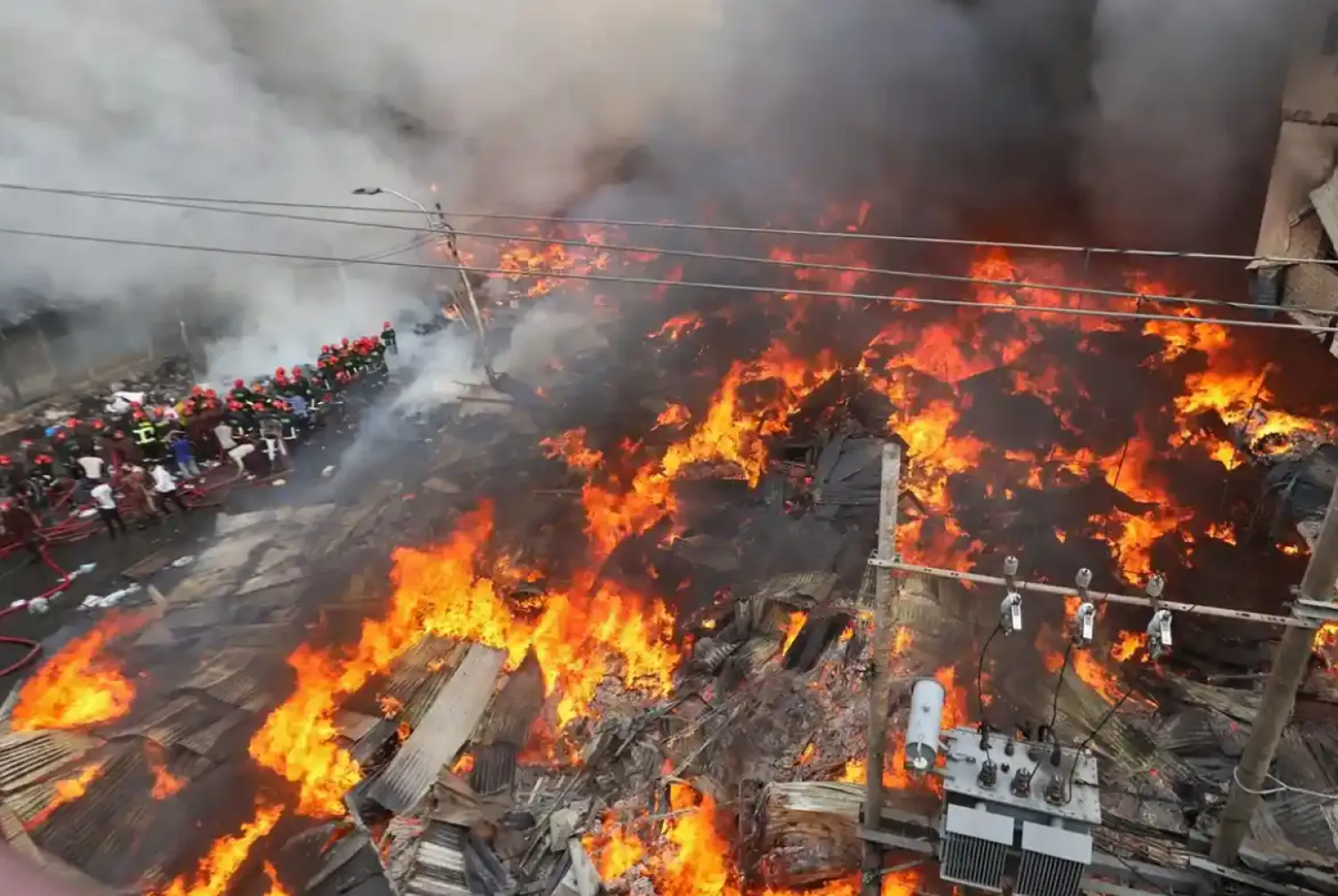Hundreds of Bangladeshi firefighters battled an inferno that raged through a popular clothing market in the capital Dhaka on Tuesday and blanketed the city's oldest neighbourhoods in black smoke.
No fatalities have been reported so far, but shop owners and fire officials told reporters that the famous Bongo Bazar and three adjacent markets had been almost completely gutted in the dawn fire.
Built in the 1980s, Bongo Bazar is a popular destination for cut-price Western fashion brands such as Tommy Hilfiger, selling clothes that were produced in the city's garment factories but failed to meet export standards.
Tempers flared as the morning wore on with a group of shop owners hurling rocks at firefighters, angered by the time it was taking to bring the blaze under control.
"We dispersed them," police spokesman Faruq Ahmed said, adding that around 450 officers had been deployed to keep order and stop looting, AFP reported.
Fire services chief Main Uddin told reporters that 600 firefighters from across the city brought the blaze under control after battling it for more than six hours, while hundreds of spectators watched from a nearby overpass.
"An enthusiastic crowd and a lack of water" along with high winds had made it difficult to combat the fire, he said.
Uddin added that Bongo Bazar, built mainly from timber and tin to house hundreds of small stalls, was designated a fire risk in 2019 and had been repeatedly issued warning letters since then.
Police inspector Bacchu Mia said at least 11 people had been injured in the fire, including five firefighters, but none were in a critical condition.
Owners said the four markets housed thousands of clothing shops in one of Dhaka's busiest precincts, home to the country's most prestigious university and its national police headquarters.
Distraught shop owners told reporters the blaze had left them destitute ahead of Eid, the Muslim festival marking the end of Ramadan and the country's biggest religious celebration.
"I borrowed 1.5 million taka ($14,200) to buy Eid clothing," one business owner said. "I've lost everything."
Building fires and explosions due to leaking gas cylinders, faulty air conditioners and bad electrical wiring are frequent in Bangladesh.
Last month, at least 23 people were killed in an explosion at a central Dhaka market later blamed on a bad gas line.
A fire and subsequent explosions at a container depot in the port city of Chittagong last year killed more than 50 people.









